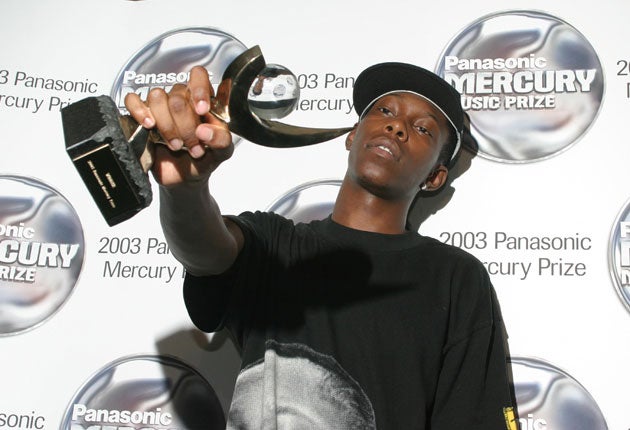Manifesto for a new Mercury Music Prize
The publicity-savvy music prize always generates a while of debate, but it could do a lot more for struggling artists and great British music.

I am not a betting man but I know the difference between 4/1 and 10/1. It is the gap between Plan B, favourite to take the 2012 Mercury Music Prize, and the relative obscurity of the nominated artists languishing at the bottom of the William Hill list. The publicity-savvy music prize always generates a whirl of debate, this year ranging from objections to the presence Radio 2-leaning singer-songwriters to complaints about the lack of dance music. But one elephantine point of contention has been around so long that it barely gets a mention today; namely that the Mercury Prize is an unfair fight.
The nominations are always led by a couple of big names, immediate favourites whose record sales and public profile are in a different universe to the experimental indie, folk and jazz bands who cling on to the bottom of the list. It is those artists – this year represented by singer and English folk music evangelist Sam Lee, funk jazz ensemble Roller Trio and prog rock-inspired Sunderland band Field Music – that give the Mercury Prize artistic kudos for its wide-ranging scope.
The irony of it is that the bands that most need the attention have little or no chance of winning, while the headline nominations could do without the lift of the prize they’re favourites to win. In that light, the non-pop and indie entries become little more than funky window dressing. And when a wildcard does win, as Speech Debelle did in 2008, and the gong doesn’t deliver immediate career explosion (as it didn’t with Debelle), commentators gleefully pile in to kick the underdog, usually highlighting a lack of sales, as if that is the absolute marker of quality.
So what is to be done? If the prize just focused on the big league, it would lose its character and become the Brit Awards-lite. But if the big acts were ditched, the event would lose its mainstream media attention at a stroke.
The answer could lie with the Man Booker Prize. At first glance, the literary equivalent to the Mercury Prize has similar issues. The Booker invites as much controversy in its own world as does its musical cousin; it has a track record of both picking a mixture of established names and unknowns as winners. This year’s line-up is no different, juxtaposing Hilary Mantel and Will Self with up-and-coming writers taken on by tiny publishers. What’s more, from top to bottom, the Booker odds are much wider than the Mercury shortlist.
Yet the Booker offers the Mercury Prize a possible route out of the torpor of its format (panel of music insider judges choose shortlist and then the winner), which is more-or-less unchanged since its foundation 20 years ago. First, the Mercury Prize should introduce the Booker long-list, taking the 12 bands and whittling them down to a shortlist of six. That would cut out those artists who were never going to win anyway (without the losing the publicity for them entirely), while providing a much more focused list for the media and public.
Would that consign jazz and folk to the sidelines? Not necessarily, because the most important reform would be more structural. Over its long judging process, the Booker line-up develops a loose theme each year (“power of prose” this time round; accessibility of writing in 2011), giving the prize a much needed hook. The Mercury Awards, too, look for strands running through the selected albums. According to its website, the twelve albums of this vintage, “share a common sense of adventure, pushing music in fresh and dynamic directions.” That’s pretty vapid stuff. A more formal move to a thematic approach could turn the Mercury Prize into something other than a tired music industry Groundhog Day. Through the pruning of the many entries, judges could pick up and run with a theme: social commentary, song-writing craft, instrumental innovation – there are endless options.
Come the shortlist, the judges could then present a slice of British music (trying to sum up such diversity completely is a fool’s game) without concern for genre, size or background. If the theme was storytelling, for example, Sam Lee and his inventive readings of English folk songs could happily sit in a shortlist next to Plan B’s soundtrack, Ill Manors. More than that even, a theme would provide a point of reference for the prize that renews each year, breathing life into the format and inviting people to look at the prize in a new light. Without it, the highlights of the Mercruy Prize will continue to be the argument over missing genres – post-dubstep anyone? – and where the good odds are. British music deserves better.

Join our commenting forum
Join thought-provoking conversations, follow other Independent readers and see their replies